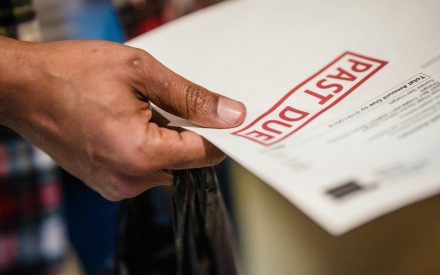Having children adds a new and important aspect to end of life planning and naming a guardian is the toughest estate planning decision a young family will need to make. If a child’s legal parents die or become incapacitated and never planned, the child could be placed with a new family. This can be disruptive and even traumatic for the child, even if the placement is with a grandparent or other extended family member.
You can avoid this disruption if you choose a legal guardian for your child in your last will. Planning for the end of life may be challenging and thinking about decisions like who should take care of my minor children if/when I die can be complicated and fraught with emotion.
Here are some things to think about. There are two kinds of guardians suitable for children: guardians of property, also called conservators, and guardians of the person. A guardian of property manages the money or assets a child holds. This is possible when the parents are alive or after their death. A guardian of the person is responsible for a child’s well-being should the child’s parents die.
Guardianship is decided based on what is in the best interest of the child. It is an important decision that should be discussed with the potential guardian and documented. No matter what, don’t assume whom guardianship of your child would go to after your death. Write your wishes down in a legal document, such as a will, parenting plan or government form. Keep in mind that guardianship would only be necessary if your child’s other parent died or was unable to care for your child sufficiently.
You can address both issues in a will. For example, a parent with sole custody might write in a will that, upon their death, their first preference would be for the child’s other parent to take custody and their second preference would be for the child’s uncle to take guardianship.
If you are divorced or separated, you can use a parenting plan instead of a will. With this approach, parents agree on a guardian and sign together, which avoids the complication of each parent writing a different guardian in their will.
While choosing a guardian for your child–and confirming it with the potential guardian–may seem daunting, it will give you the reassurance that your child will be cared for by someone you trust and will also give you peace of mind. Remember, you must confirm it with the potential guardian. It’s worthwhile to put in the time now to do the work and have the conversation — no matter how uncomfortable you may feel about it.
The ABC’s: Things to Think About When Making the Decision of Guardianship
- Parenting style: Whether the guardian’s parenting style, values, and religious beliefs align with your own
- Bond with your child: Whether your child knows and feels a strong bond with the guardian
- Responsibility: Whether the guardian can take on the responsibility of caring for your child emotionally, financially, and physically
- Age and health: Whether the guardian is young and healthy enough to keep up with the children but old enough to manage resources
- Location: Whether the guardian lives in a safe neighborhood with good schools nearby
- Other children: If the guardian has other children, whether your child would fit in
- Background: Whether the guardian has been convicted of any felonies
- Guardian’s values. Would their morals interfere with your family’s?
- Guardian’s other children. If the guardian has other children, would they get along with your children?
- Guardian’s spouse. If the potential guardian is married, are you comfortable with their spouse being involved? You should also consider whether you are naming the married couple as the co-guardians or just one of the two.
If you are interested in this topic, you should consider participating in UW-Madison Extension’s Planning AHEAD course. Planning AHEAD is an end-of-life planning program that is offered in-person and online. Also, you can talk about other important family and financial topics with an Extension educator in your county. Visit https://aging.extension.wisc.edu for more information.
Note: This document is intended to provide educational information about guardianship. We recommend you work with a professional to address important estate planning issues in more depth.
Sources:
https://gwaar.org/guardianship-resources
https://www.guardianship.org/education/publications/
Photo credit: Ivan Samkov
Download Article

 Administración de las finanzas después de una pérdida de empleo
Administración de las finanzas después de una pérdida de empleo Ways to Get Out of Debt
Ways to Get Out of Debt Using Digital Coupons
Using Digital Coupons Managing Finances After a Job Loss
Managing Finances After a Job Loss


